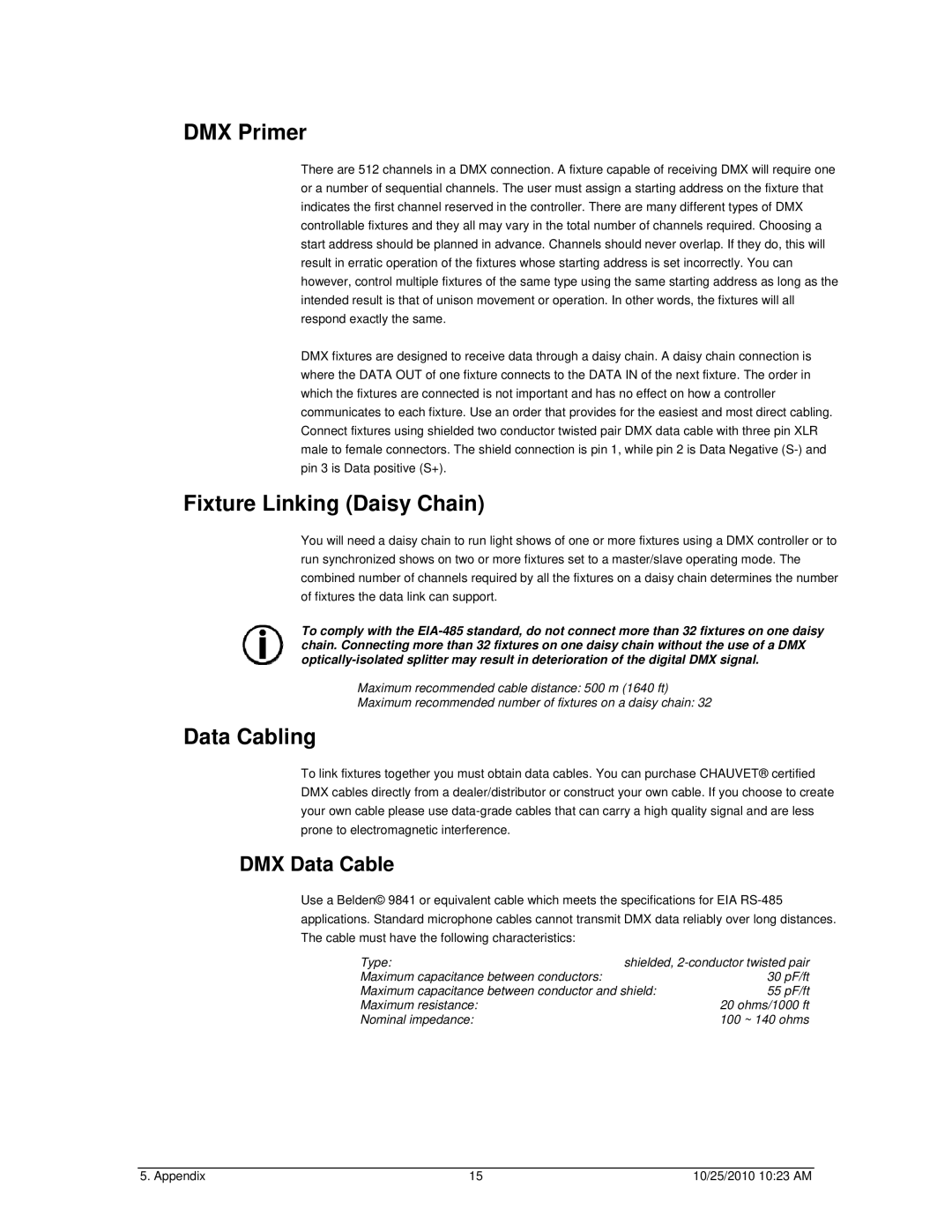SCAN LED 300 specifications
The Chauvet SCAN LED 300 is a cutting-edge mirror scanner designed to elevate the performance capabilities of lighting professionals and event designers. Combining advanced LED technology with versatile features, this lighting fixture is ideal for clubs, concerts, and various live events.One of the standout features of the SCAN LED 300 is its powerful LED source. Capable of producing bright and vivid colors, the fixture utilizes high-efficiency LEDs that ensure longevity and low power consumption. This not only results in a lower carbon footprint but also reduces the costs associated with frequent bulb replacements common in traditional lighting systems.
In terms of performance, the SCAN LED 300 offers a wide array of color options and effects. With a comprehensive color wheel featuring multiple hues, operators can depict dynamic visuals that captivate audiences. The built-in effects and gobo patterns further enhance its capabilities, allowing for customizations that fit the specific ambiance of any venue.
Control is seamless with various operation modes available on the SCAN LED 300. It can be operated in standalone mode or controlled via DMX, granting users versatility in programming and automation. For ease of use, the fixture features a digital display for quick access to settings and menu scrolls, making adjustments straightforward on the fly.
Adding to its user-friendly attributes, the Chauvet SCAN LED 300 is designed with a lightweight and compact structure, making it easily transportable for touring professionals. Its rugged construction is also built to withstand the rigors of frequent travel while ensuring long-term reliability.
The fixture’s pan and tilt movement ensures expansive coverage, providing the ability to create sweeping light patterns across large areas. With its 180-degree pan and 90-degree tilt capabilities, the SCAN LED 300 can be used to produce impactful light shows that resonate well with audiences.
In summary, the Chauvet SCAN LED 300 is an exceptional lighting fixture that integrates advanced technologies with practical features. Its efficient LED source, operational versatility, and robust design make it a preferred choice for lighting professionals looking to push the boundaries of creativity in their productions. Whether for intimate gatherings or grand performances, the SCAN LED 300 stands out as an essential tool in modern event lighting.
